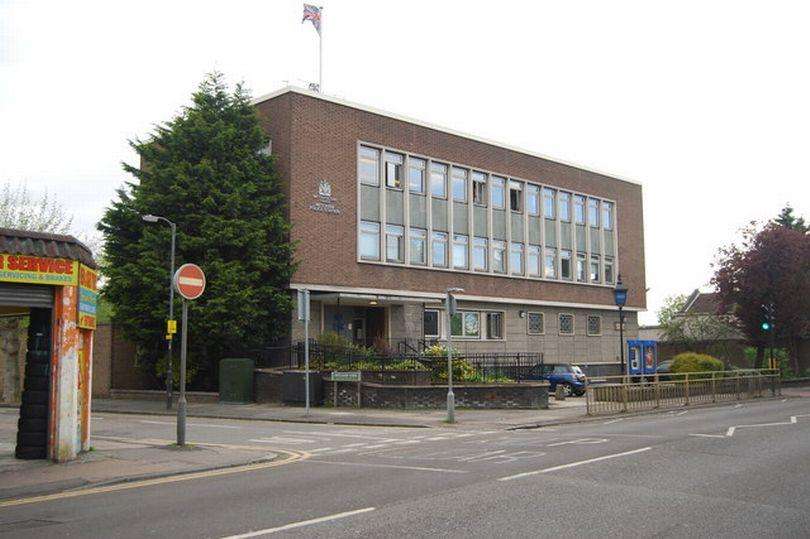[caption id="attachment_5306" align="aligncenter" width="691"]
 Natasha with her parents Robert and Margaret (Family Handout/PA)
Natasha with her parents Robert and Margaret (Family Handout/PA)[/caption]
The University of Bristol's attempt to reverse a decision that found it had discriminated against a chronically anxious student who killed herself before a significant oral presentation was unsuccessful.
In April 2018, 20-year-old Natasha Abrahart, a student of physics, was discovered dead in her flat. The day before, she was scheduled to participate in a group presentation in front of over 40 students in a lecture theatre with 329 seats.
According to prior testimony given in Bristol County Court, Ms. Abrahart attempted suicide once during the winter term, and university employees were aware that she was having difficulties.
Before the presentation, known as a laboratory conference, Ms Abrahart had struggled to complete one-on-one interview-based assessments, with the court told she had scored only eight out of a possible 20 marks in one assessment.
In May 2022, Judge Alex Ralton ruled the university had breached its duties under the Equality Act by failing to make “reasonable adjustments” for Ms Abrahart in light of her debilitating anxiety, which is considered a disability.
Judge Ralton, sitting at the Civil Justice Centre in Bristol, also found the university had engaged in indirect disability discrimination against Ms Abrahart, and treated her unfavourably because of the consequences of her disability.
However, the judge dismissed a claim that the university had been negligent.
The university was ordered to pay Ms Abrahart’s parents £50,000 in damages and invited to agree a sum for her funeral expenses.
In December last year, the university brought an appeal in the High Court, arguing that the judge was wrong to find that it knew, or should have known, enough about Ms Abrahart’s condition to adjust the assessments.
Lawyers for the university also said the institution had acted reasonably “given the importance of maintaining academic standards, and fairness to other students”.
However, Ms Abrahart’s father, Robert Abrahart, opposed the appeal, with his lawyers telling the court the judge was right in his decision and that oral assessments could have been replaced with written versions or the student could have been provided with questions in advance.
In a ruling on Wednesday, Mr Justice Linden dismissed the university’s appeal.
He said: “There will no doubt be many cases where it is reasonable to verify what the disabled person says and/or to require expert evidence or recommendations so as to make well-informed decisions… But what a disabled person says and/or does is evidence.
“There may be circumstances, such as urgency and/or the severity of their condition, in which a court will be prepared to conclude that it is sufficient evidence for an educational institution to be required to take action.”
Following the ruling, Professor Evelyn Welch, vice chancellor and president of the University of Bristol, said: “Natasha’s death is a tragedy – I am deeply sorry for the Abrahart family’s loss.
“At Bristol, we care profoundly for all our students, and their mental health and wellbeing is a priority and is at the heart of everything we do. We continue to develop and improve our services and safeguards to support our students who need help.
“In appealing, we were seeking clarity for the higher education sector around the application of the Equality Act when staff do not know a student has a disability, or when it has yet to be diagnosed. We will work with colleagues across the sector as we consider the judgment.”
Prof Welch continued: “In 2022 Bristol became one of the first universities to receive the University Mental Health Charter Award, which recognises the continued hard work of our staff and students in terms of taking a strong, structured approach towards improving mental health and wellbeing across our university.
“We know there is always more to do, and we will keep working to achieve the best for everyone in our community.”
The Equality and Human Rights Commission (EHRC), which intervened in the case, welcomed the ruling.
The organisation’s chairwoman Baroness Kishwer Falkner said: “Today our thoughts are firmly with Natasha’s loved ones.
“As the equality regulator, we assisted the court in determining how universities should approach their duty to make reasonable adjustments, bearing in mind the anticipatory nature of that duty.
“While we will take time to consider today’s judgment in full, it provides clarity on the approach universities should take in relation to what parts of an examination or assessment should amount to competence standards.
“This case will help ensure universities benefit from clearer guidance on their duties under the Equality Act, when they arise, and where the competence standard exception can be applied.
“We also hope that current and prospective disabled students will feel empowered by this judgment, which provides them with clarity on what they should expect from their university.”
 Natasha with her parents Robert and Margaret (Family Handout/PA)[/caption]
The University of Bristol's attempt to reverse a decision that found it had discriminated against a chronically anxious student who killed herself before a significant oral presentation was unsuccessful.
In April 2018, 20-year-old Natasha Abrahart, a student of physics, was discovered dead in her flat. The day before, she was scheduled to participate in a group presentation in front of over 40 students in a lecture theatre with 329 seats.
According to prior testimony given in Bristol County Court, Ms. Abrahart attempted suicide once during the winter term, and university employees were aware that she was having difficulties.
Before the presentation, known as a laboratory conference, Ms Abrahart had struggled to complete one-on-one interview-based assessments, with the court told she had scored only eight out of a possible 20 marks in one assessment.
In May 2022, Judge Alex Ralton ruled the university had breached its duties under the Equality Act by failing to make “reasonable adjustments” for Ms Abrahart in light of her debilitating anxiety, which is considered a disability.
Judge Ralton, sitting at the Civil Justice Centre in Bristol, also found the university had engaged in indirect disability discrimination against Ms Abrahart, and treated her unfavourably because of the consequences of her disability.
However, the judge dismissed a claim that the university had been negligent.
The university was ordered to pay Ms Abrahart’s parents £50,000 in damages and invited to agree a sum for her funeral expenses.
In December last year, the university brought an appeal in the High Court, arguing that the judge was wrong to find that it knew, or should have known, enough about Ms Abrahart’s condition to adjust the assessments.
Lawyers for the university also said the institution had acted reasonably “given the importance of maintaining academic standards, and fairness to other students”.
However, Ms Abrahart’s father, Robert Abrahart, opposed the appeal, with his lawyers telling the court the judge was right in his decision and that oral assessments could have been replaced with written versions or the student could have been provided with questions in advance.
In a ruling on Wednesday, Mr Justice Linden dismissed the university’s appeal.
He said: “There will no doubt be many cases where it is reasonable to verify what the disabled person says and/or to require expert evidence or recommendations so as to make well-informed decisions… But what a disabled person says and/or does is evidence.
“There may be circumstances, such as urgency and/or the severity of their condition, in which a court will be prepared to conclude that it is sufficient evidence for an educational institution to be required to take action.”
Following the ruling, Professor Evelyn Welch, vice chancellor and president of the University of Bristol, said: “Natasha’s death is a tragedy – I am deeply sorry for the Abrahart family’s loss.
“At Bristol, we care profoundly for all our students, and their mental health and wellbeing is a priority and is at the heart of everything we do. We continue to develop and improve our services and safeguards to support our students who need help.
“In appealing, we were seeking clarity for the higher education sector around the application of the Equality Act when staff do not know a student has a disability, or when it has yet to be diagnosed. We will work with colleagues across the sector as we consider the judgment.”
Prof Welch continued: “In 2022 Bristol became one of the first universities to receive the University Mental Health Charter Award, which recognises the continued hard work of our staff and students in terms of taking a strong, structured approach towards improving mental health and wellbeing across our university.
“We know there is always more to do, and we will keep working to achieve the best for everyone in our community.”
The Equality and Human Rights Commission (EHRC), which intervened in the case, welcomed the ruling.
The organisation’s chairwoman Baroness Kishwer Falkner said: “Today our thoughts are firmly with Natasha’s loved ones.
“As the equality regulator, we assisted the court in determining how universities should approach their duty to make reasonable adjustments, bearing in mind the anticipatory nature of that duty.
“While we will take time to consider today’s judgment in full, it provides clarity on the approach universities should take in relation to what parts of an examination or assessment should amount to competence standards.
“This case will help ensure universities benefit from clearer guidance on their duties under the Equality Act, when they arise, and where the competence standard exception can be applied.
“We also hope that current and prospective disabled students will feel empowered by this judgment, which provides them with clarity on what they should expect from their university.”
Natasha with her parents Robert and Margaret (Family Handout/PA)[/caption]
The University of Bristol's attempt to reverse a decision that found it had discriminated against a chronically anxious student who killed herself before a significant oral presentation was unsuccessful.
In April 2018, 20-year-old Natasha Abrahart, a student of physics, was discovered dead in her flat. The day before, she was scheduled to participate in a group presentation in front of over 40 students in a lecture theatre with 329 seats.
According to prior testimony given in Bristol County Court, Ms. Abrahart attempted suicide once during the winter term, and university employees were aware that she was having difficulties.
Before the presentation, known as a laboratory conference, Ms Abrahart had struggled to complete one-on-one interview-based assessments, with the court told she had scored only eight out of a possible 20 marks in one assessment.
In May 2022, Judge Alex Ralton ruled the university had breached its duties under the Equality Act by failing to make “reasonable adjustments” for Ms Abrahart in light of her debilitating anxiety, which is considered a disability.
Judge Ralton, sitting at the Civil Justice Centre in Bristol, also found the university had engaged in indirect disability discrimination against Ms Abrahart, and treated her unfavourably because of the consequences of her disability.
However, the judge dismissed a claim that the university had been negligent.
The university was ordered to pay Ms Abrahart’s parents £50,000 in damages and invited to agree a sum for her funeral expenses.
In December last year, the university brought an appeal in the High Court, arguing that the judge was wrong to find that it knew, or should have known, enough about Ms Abrahart’s condition to adjust the assessments.
Lawyers for the university also said the institution had acted reasonably “given the importance of maintaining academic standards, and fairness to other students”.
However, Ms Abrahart’s father, Robert Abrahart, opposed the appeal, with his lawyers telling the court the judge was right in his decision and that oral assessments could have been replaced with written versions or the student could have been provided with questions in advance.
In a ruling on Wednesday, Mr Justice Linden dismissed the university’s appeal.
He said: “There will no doubt be many cases where it is reasonable to verify what the disabled person says and/or to require expert evidence or recommendations so as to make well-informed decisions… But what a disabled person says and/or does is evidence.
“There may be circumstances, such as urgency and/or the severity of their condition, in which a court will be prepared to conclude that it is sufficient evidence for an educational institution to be required to take action.”
Following the ruling, Professor Evelyn Welch, vice chancellor and president of the University of Bristol, said: “Natasha’s death is a tragedy – I am deeply sorry for the Abrahart family’s loss.
“At Bristol, we care profoundly for all our students, and their mental health and wellbeing is a priority and is at the heart of everything we do. We continue to develop and improve our services and safeguards to support our students who need help.
“In appealing, we were seeking clarity for the higher education sector around the application of the Equality Act when staff do not know a student has a disability, or when it has yet to be diagnosed. We will work with colleagues across the sector as we consider the judgment.”
Prof Welch continued: “In 2022 Bristol became one of the first universities to receive the University Mental Health Charter Award, which recognises the continued hard work of our staff and students in terms of taking a strong, structured approach towards improving mental health and wellbeing across our university.
“We know there is always more to do, and we will keep working to achieve the best for everyone in our community.”
The Equality and Human Rights Commission (EHRC), which intervened in the case, welcomed the ruling.
The organisation’s chairwoman Baroness Kishwer Falkner said: “Today our thoughts are firmly with Natasha’s loved ones.
“As the equality regulator, we assisted the court in determining how universities should approach their duty to make reasonable adjustments, bearing in mind the anticipatory nature of that duty.
“While we will take time to consider today’s judgment in full, it provides clarity on the approach universities should take in relation to what parts of an examination or assessment should amount to competence standards.
“This case will help ensure universities benefit from clearer guidance on their duties under the Equality Act, when they arise, and where the competence standard exception can be applied.
“We also hope that current and prospective disabled students will feel empowered by this judgment, which provides them with clarity on what they should expect from their university.”







.svg)

